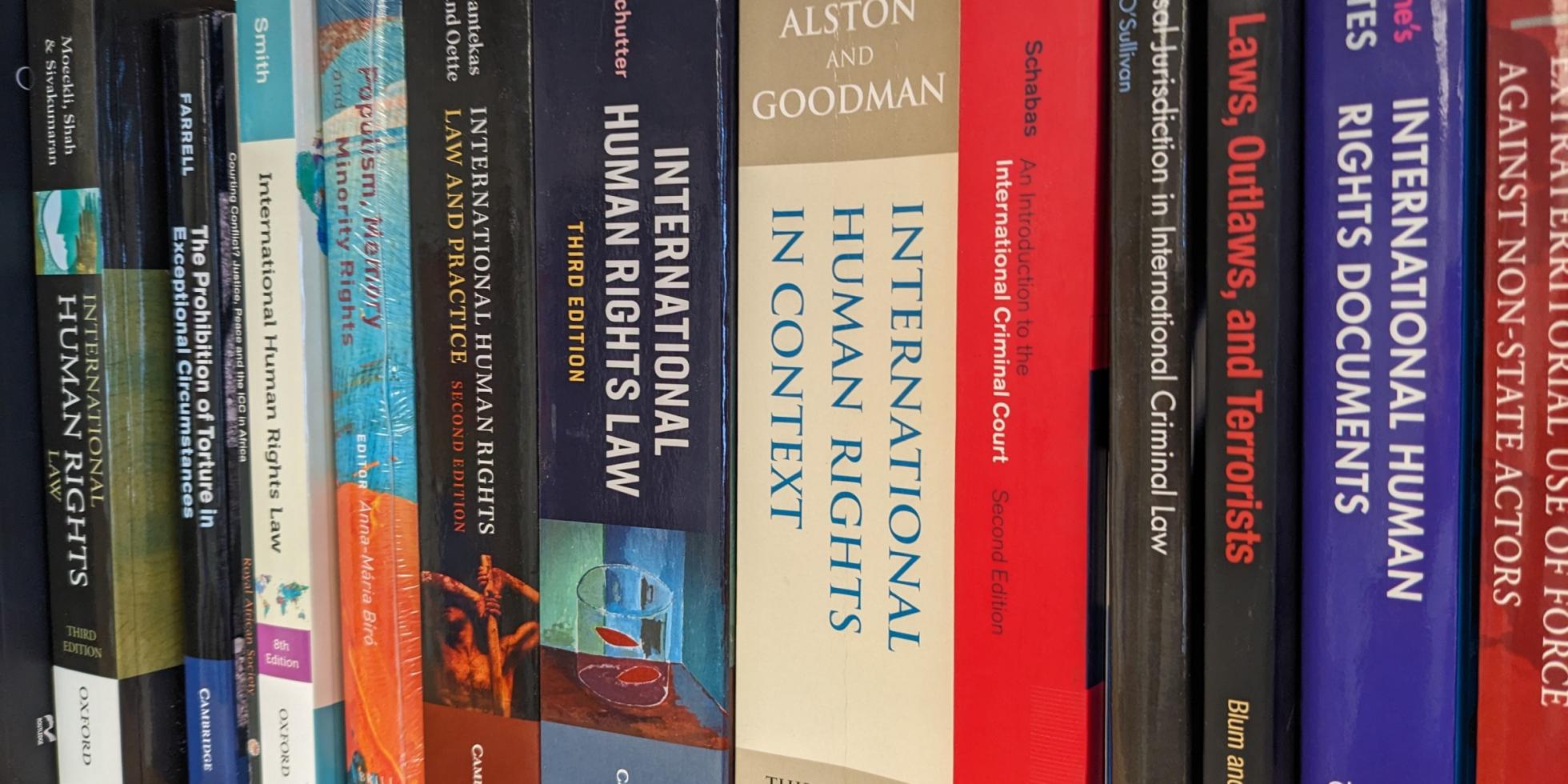The virtual human rights library brings together resources from multiple libraries and information services, both internal and external, to create an online hub dedicated to the study of human rights. This curation is unique in its interdisciplinary concerns and focuses on writings and research from social sciences, humanities, and law.
The virtual library is continually updated with the latest academic research in issue areas, as well as with relevant films, recorded conversations, and other forms of media.
Please Note:
The Virtual Library is usable by all visitors, but the hyperlinks to materials listed are for UChicago community members with a CNet ID and password.
Please direct feedback and suggestions to Kathleen Cavanaugh.
For technical assistance, email pozenhumanrights @ uchicago.edu.
Searchable Database
Click into the dropdowns to select the disciplines, keywords, and media type for your search, and then hit "Apply."
12 Million Black Voices
12 Million Black Voices, first published in 1941, combines Wright's prose with startling photographs selected by Edwin Rosskam from the Security Farm Administration files compiled during the Great Depression. The photographs include works by such giants as Walker Evans, Dorothea...
1959 拉薩!
1959年3月10日,拉薩數萬民眾包圍達賴喇嘛的夏宮羅布林卡,阻止他按照原定計劃前往西藏軍區司令部觀看文藝演出。隨後民眾集會遊行,喊出了要求解放軍撤出西藏,要求西藏獨立的口號。那天在拉薩發生的事,史稱「1959年拉薩事件」。事件導致未滿24歲的西藏政教領袖,時任全國人大常委會副委員長、西藏自治區籌委會主任的第十四世達賴喇嘛丹增嘉措率家人和噶廈政府部分主要官員,於17日深夜離開羅布林卡,經過兩周跋涉,翻越喜馬拉雅山,前往印度尋求政治庇護。
本書是以 細緻入微的研究以及公正的立場揭示「1959年拉薩事件」歷史真相的開創性作品。
On March 10th, 1959, tens of thousands of people surrounded Norbulingka, the Dalai Lama's summer palace in Lhasa, preventing him from attending a prescheduled theater performance at the headquarters of the Tibetan Military Region. Soon afterwards, the...
A Call for Heresy: Why Dissent Is Vital to Islam and America
A Call for Heresy discovers unexpected common ground in one of the most inflammatory issues of the twenty-first century: the deepening conflict between the Islamic world and the United States. Moving beyond simplistic answers, Anouar Majid argues that the Islamic...
A False Tree of Liberty: Human Rights in Radical Thought
This book is concerned with the history of the idea of human rights. It offers a fresh approach that puts aside familiar questions such as 'Where do human rights come from?' and 'When did human rights begin?' for the sake...
A Kind of Freedom
Evelyn is a Creole woman who comes of age in New Orleans at the height of World War II. Her family inhabits the upper echelon of Black society, and when she falls for no-account Renard, she is forced to choose...
A Lucky Child: A Memoir of Surviving Auschwitz as a Young Boy
Thomas Buergenthal, now a Judge in the International Court of Justice in The Hague, tells his astonishing experiences as a young boy in his memoir A Lucky Child. He arrived at Auschwitz at age 10 after surviving two ghettos and...
A New Deal for the World: America's Vision for Human Rights
Elizabeth Borgwardt describes how a cadre of World War II American planners inaugurated the ideas and institutions that underlie our modern international human rights regime. Borgwardt finds the key in the 1941 Atlantic Charter and its Anglo-American vision of "war...
A Secular Need: Islamic Law and State Governance in Contemporary India
Whether from the perspective of Islamic law’s advocates, secularism’s partisans, or communities caught in their crossfire, many people see the relationship between Islamic law and secularism as antagonistic and increasingly discordant. In the United States there are calls for “sharia...
A Theory of Justice
Rawls aims to express an essential part of the common core of the democratic tradition—justice as fairness—and to provide an alternative to utilitarianism, which had dominated the Anglo-Saxon tradition of political thought since the nineteenth century. Rawls substitutes the ideal...

